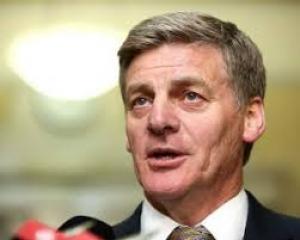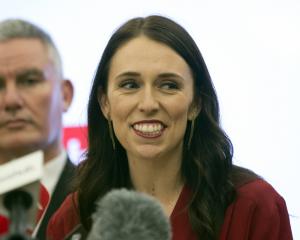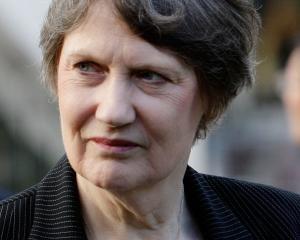
Likewise from ``coalition'' partner, the Greens - who, by the way, got far more in election donations in 2014 than Labour.
``Nine long years'', Labour grandee Steve Maharey used to intone in 1999 before Labour's win that year. Stuart Nash intoned it last week with the same hope of release.
But will it be ``12 long years''? That question will hang over this coming weekend's pre-election congress (conference).
Labour's poll average has sunk from more than 30% in March to less than 28%. Was the lift it got after making Jacinda Ardern deputy leader a blip? (National has also slipped but is still about 45%.)
There is change. Three years ago Mr Nash was on the outer, so stood as an electorate-only candidate. He won Napier, helped by Sensible Sentencing boss Garth McVicar eating into National's vote.
This time, Mr Nash is No 10 on the list, reflecting Andrew Little's front bench posting of him after Annette King stepped back.
Mr Nash fits Mr Little's bid for middling suburban males who, two generations back, would have been mainly Labour. From 1974 to 1984, National's Sir Robert Muldoon won many over with his pitch to ``ordinary blokes''. Then Labour's 1984-90 radical economics and, later, women's, gay and ethnic rights focus chased away many of them and their descendants.
Labour's big list story last week was not Mr Nash but bright younger newcomers in high spots. They happen to be women but happen also to be able. That story got buried in the shambles over the list's release, featuring another blokey Little ``captain's pick'', Willie Jackson.
Getting that refresh story out is critical because National did a major refresh in 2014 and this year has lower-X/Y generation Simon Bridges and Nikki Kaye high in the Cabinet, with more poised to join post-election.
Labour's lower-X/Ys Ms Ardern, Grant Robertson (finance), Chris Hipkins (education) and David Clark (health) are high-placed. But National is now challenging the generational lead their rank and influence used to give Labour.
The congress will bill Ms Ardern and Mr Robertson big.
But soon after comes Steven Joyce's budget.
Mr Joyce will paint a reassuring picture of recent and future economic growth, based on immigration and tourism floods, good commodity prices and booming construction and job growth to match. There will be tax thresholds (and other?) changes.
Sure, there is a stream of news of hospital financial woes, homelessness and other social strains which might disturb some middling voters. But the billions of dollars already hosed out and more to come can soothe such discomfort. Health Minister Jonathan Coleman has even tried to offset criticism that mental health services are under-resourced, then trickled a bit to Pharmac.
That soothing aligns with Bill English's reported comment to a National regional conference 10 days back that National, while well positioned, is ``paranoid''. Recall Ms Kaye's and Maggie Barry's personal attacks on Ms Ardern after her promotion.
Ms Ardern took on Mr English's ``social investment'' in Parliament last Wednesday. He had just issued new ``targets'' which, Labour scoffed, left out previous targets for NCEA level 2 passes, rheumatic fever and reoffending by criminals let out of bulging prisons (our modern mental asylums).
Ms Ardern claimed investing early to save later is longstanding Labour ``commonsense''. But, she said, Labour goes beyond trimming future budget costs and looks to save wasted potential of young people not in training or work, the ``waste and loss of dignity'' of wages too low to provide for a family and the waste of a child's future from preventable illness.
``This government continues to look at the mischief and not the cause,'' she said.
Mr Robertson calls Mr English's version of ``social investment'' ``blinkered''.
He will produce an alternative Budget in early June which will aim to look responsible and point down a different policy path from the Government's.
Mr Robertson doesn't buy Mr Joyce's new target for net government debt of 10%-15% of gross domestic product (GDP), down from Mr English's 20%. He will differentiate between borrowing for long-term investment, notably in infrastructure, and borrowing for current spending. He will open Labour to alternative funding such as infrastructure bonds and public-private partnerships.
He will point towards wider measures of economic success than GDP, an issue some economists increasingly debate and implicit in the Treasury's living standards framework of financial, natural, social and human capital.
In two pre-Budget speeches Mr Robertson will bring up the future of work in the 2020s, environmental sustainability, regional development and ending negative gearing.
Different enough from Mr Joyce to promise a convincing alternative future but also to get traction with middling voters? His congress audience on Saturday will want to believe so.
The alternative: three more ``long years''.
Colin James is a leading social and political commentator. ColinJames@synapsis.co.nz












